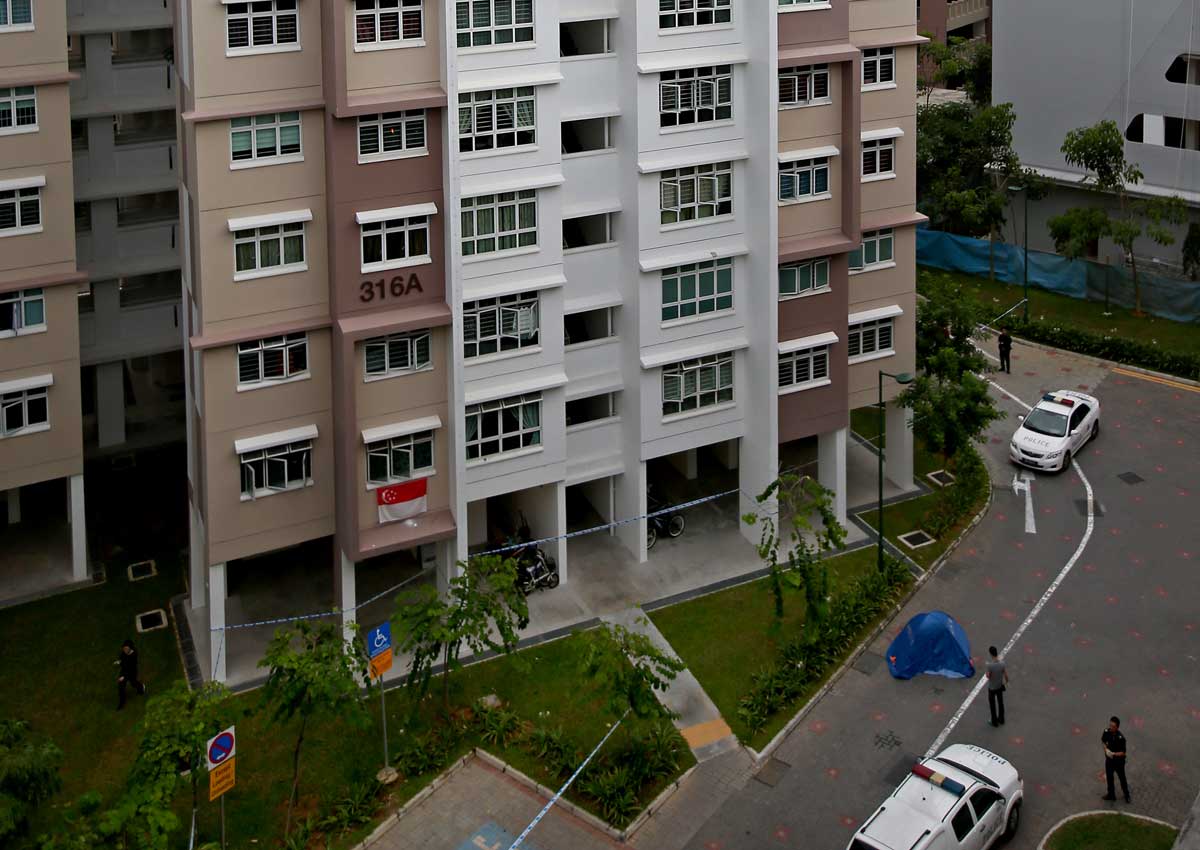The consensus is clear: Children taken for police questioning should be accompanied by an adult.
But social workers, parents and lawyers are divided on who this person should be – the parent, a school counsellor or a social worker.
The debate comes on the heels of State Coroner Marvin Bay’s suggestion on Thursday that school counsellors could go with students to police stations when the latter are picked up from school, as a “reassuring presence”.
He was delivering his findings for an inquiry into 14-year-old Benjamin Lim’s death. The teen had jumped to his death on Jan 26, hours after he was taken alone to Ang Mo Kio Police Division for questioning over an alleged molestation.
Ms Petrine Lim, principal social worker at Fei Yue Family Service Centre, said parents should accompany their children. “I think it’s definitely more reassuring and there will be less anxiety for the child to have a familiar face to look for.”
Madam Jileen Tan, 53, who has a 16-year-old son, agreed. “If the parents cannot go, somebody from the family should be around to support the child. Benjamin’s mother went to the school and could not find her child – if it were me, I’d have lost it,” she said.
Read also: Benjamin Lim case: What’s true, what’s false
But lawyers caution that parents can be overprotective and inadvertently disrupt police investigations.
Criminal lawyer Sunil Sudheesan said: “I don’t think it should be the parents; I think it should be independent people without vested interests in the case. Thankfully, there’s already a system we can refer to.” He was referring to the Appropriate Adult Scheme, launched in March last year, where a trained volunteer accompanies a person with intellectual or mental disabilities during police interviews.
Under this scheme, administered by the Movement for the Intellectually Disabled of Singapore, when the police pick up a suspect with a mental or intellectual condition, they call on a pool of 200 volunteers trained in both basic police procedures and communicating with the disabled.
Within 1 1/2 hours, a volunteer will arrive and sit in for the interview, ensuring that both sides do not misunderstand each other.
Experts suggest the scheme be adapted for minors, with the appropriate adult being a school counsellor or social worker.
As counsellors are trained, they can remain objective, said Mr Alfred Tan, chief executive of the Singapore Children’s Society.
They could also help explain the investigation process, giving the child a realistic perspective of the consequences. “We cannot assume every parent knows what are the appropriate steps to take or the right things to say to the child,” he said.
Mr Sudheesan said the adult could sit in and take notes, while the police videotape the interview: “Then there is no way you can accuse the police of wrongdoing.”
But former police officer Lim Ah Soon, 70, thought having an adult – no matter who – sit in at an interview could interfere with fact-finding. He would rather the person be outside the interview room. He said some suspects could get more daring with someone else present.
In his report, Coroner Bay said counsellors should not participate directly in the interview but can remain close by, such as along the corridors of the workstations.
They can also be a “resource” person that the child, family and police can tap and who can give real-time information on where the child is during the process.
The police and the Ministry of Education have said they will consider the coroner’s suggestions in their ongoing review of the protocol.
Benjamin’s case also inspired the Law Society to set up a sub-committee in February to study the matter. The Straits Times understands the 10-man sub-committee met on Thursday. “The committee is currently working on the recommendations which will be duly forwarded to the authorities,” said a Law Society spokesman.

This article was first published on Aug 20, 2016.
Get a copy of The Straits Times or go to straitstimes.com for more stories.




















